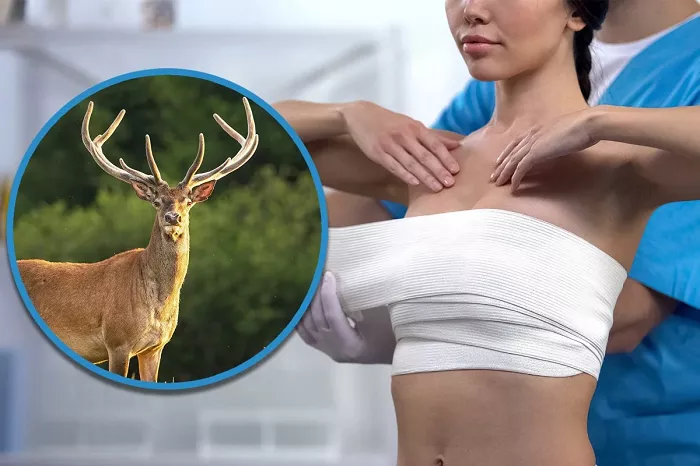A woman in China has been left severely disabled after undergoing a costly breast enhancement procedure that involved animal DNA, despite being told the materials used were derived from her own body.
Lingling, from Jiangxi province in southeastern China, was introduced to a breast augmentation technique in 2017 by the owner of a local beauty salon. The method, promoted by the Beijing Creating Medical Cosmetic Clinic, claimed to extract and grow the patient’s own collagen, which would then be reinjected into the breasts. The clinic advertised the procedure as natural, safe, and free from rejection risks because the materials were supposedly “self-derived.”
In September that year, Lingling visited the clinic with the salon owner. The lead surgeon, Bai Jin, assured her that the surgery was both simple and safe.
However, soon after the operation, Lingling began to feel pain and noticed a strange sensation in her breasts. Over the next six years, she underwent nine additional surgeries, including implant insertions and corrections, spending a total of 2.39 million yuan (US$332,000).
By 2023, her condition worsened. She noticed leaks and deformities in her implants.
“There were two lumps on my chest that reached my stomach,” she said.
When she requested corrective surgery from the Beijing clinic, they demanded a medical assessment report first. In October 2024, she traveled to a hospital in Shanghai to have the implants removed and tested.
Doctors found that the implanted material had caused significant damage to her body. Test results revealed that the implants contained DNA from cattle and moose—contradicting the clinic’s claim that the material was taken from her own body.
A recognized medical institution later classified her breast deformity as a severe disability. Lingling has suffered not only physical damage but also ongoing psychological distress.
Fu, a beauty industry insider from Jiangxi, told Jiangxi Television that other former patients had also tested their implants and found DNA from animals like camels, bats, and even gorillas.
“These non-human materials can cause serious health risks, including immune rejection,” Fu warned.
Lingling tried to seek compensation, but both the Beijing clinic and the beauty salon had already closed down. Authorities later found that the clinic’s business license had been revoked and that it had been involved in 398 medical malpractice cases. The surgeon, Bai Jin, was not even registered with medical authorities.
On March 1, Lingling officially reported the case to the Beijing Municipal Health Commission. But since the clinic and salon no longer exist, her legal path forward remains difficult.
The local market regulatory department has said it will open further investigations into the clinic’s false advertising.
The story has gained widespread attention on mainland Chinese social media. Posts related to Lingling’s case have been viewed more than 37 million times.
“Appearance anxiety has affected the values of many women. Lingling is so unfortunate,” one commenter wrote online.
Another user said: “Many shady beauty clinics just reopen under different names. It’s a legal loophole that makes them hard to track.”
“That two million yuan could have been spent on fitness and a healthy diet,” another added. “Instead, it went to a surgery that nearly cost her life.”
Related topics:


